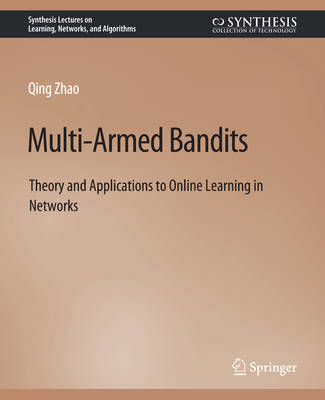
- Retrait gratuit dans votre magasin Club
- 7.000.000 titres dans notre catalogue
- Payer en toute sécurité
- Toujours un magasin près de chez vous
- Retrait gratuit dans votre magasin Club
- 7.000.0000 titres dans notre catalogue
- Payer en toute sécurité
- Toujours un magasin près de chez vous
58,45 €
+ 116 points
Format
Description
Multi-armed bandit problems pertain to optimal sequential decision making and learning in unknown environments. Since the first bandit problem posed by Thompson in 1933 for the application of clinical trials, bandit problems have enjoyed lasting attention from multiple research communities and have found a wide range of applications across diverse domains. This book covers classic results and recent development on both Bayesian and frequentist bandit problems. We start in Chapter 1 with a brief overview on the history of bandit problems, contrasting the two schools--Bayesian and frequentist--of approaches and highlighting foundational results and key applications. Chapters 2 and 4 cover, respectively, the canonical Bayesian and frequentist bandit models. In Chapters 3 and 5, we discuss major variants of the canonical bandit models that lead to new directions, bring in new techniques, and broaden the applications of this classical problem. In Chapter 6, we present several representative application examples in communication networks and social-economic systems, aiming to illuminate the connections between the Bayesian and the frequentist formulations of bandit problems and how structural results pertaining to one may be leveraged to obtain solutions under the other.
Spécifications
Parties prenantes
- Auteur(s) :
- Editeur:
Contenu
- Nombre de pages :
- 147
- Langue:
- Anglais
- Collection :
Caractéristiques
- EAN:
- 9783031792885
- Date de parution :
- 21-11-19
- Format:
- Livre broché
- Format numérique:
- Trade paperback (VS)
- Dimensions :
- 191 mm x 235 mm
- Poids :
- 328 g

Les avis
Nous publions uniquement les avis qui respectent les conditions requises. Consultez nos conditions pour les avis.






